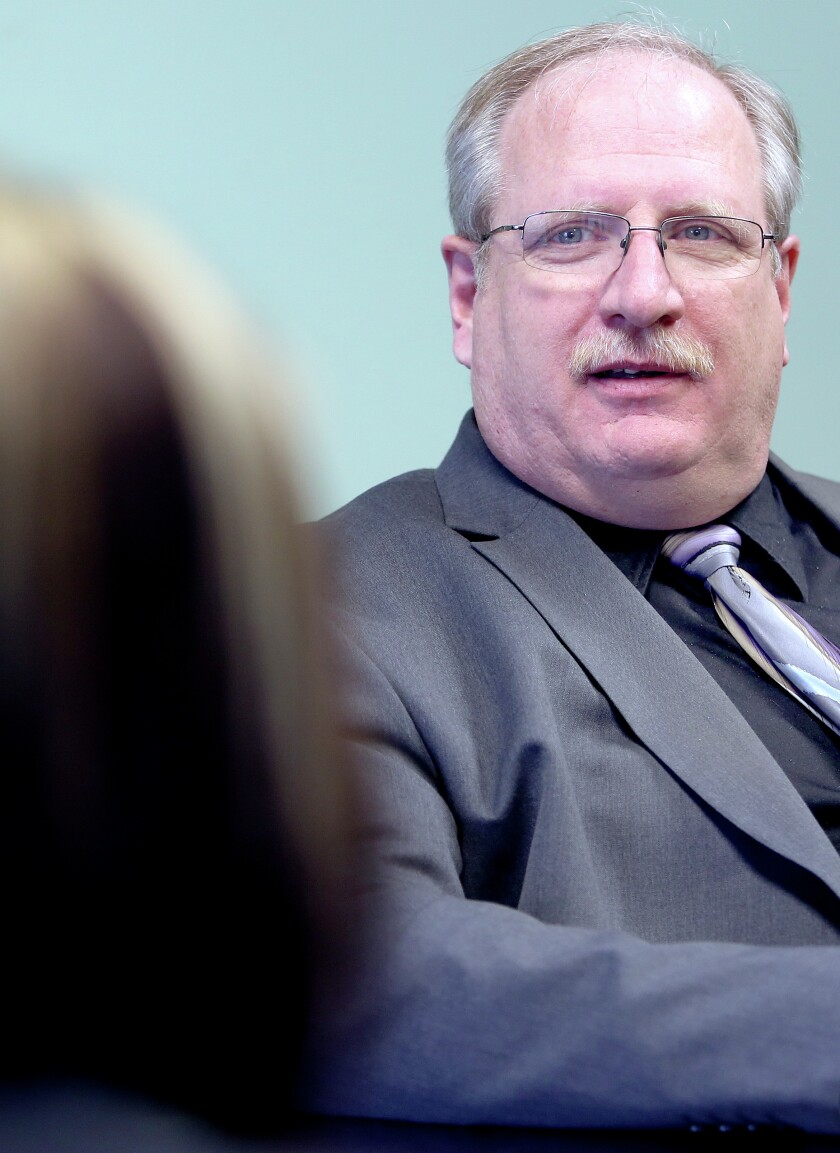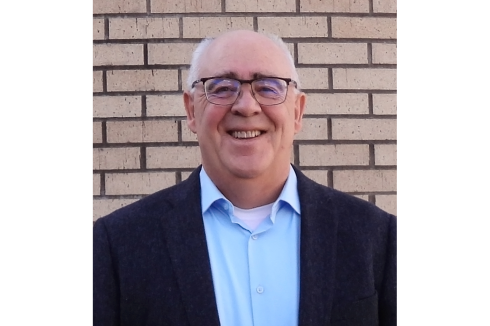Nobody seems to know exactly when the beacon atop the Duluth Bethel building stopped working.
But when it did go dark, it extinguished a part of Duluth Bethel, too - the most public part.
ADVERTISEMENT
"We work hard, but we work quiet here on the Hillside," said executive director Dennis Cummings, who oversaw the beacon's repair and will relight it in a 4 p.m. ceremony today that will put the light back into use for the first time in decades.
The best Cummings can guess is the beacon last operated 50 years ago before falling into disrepair. The news of the relighting means St. Louis County Attorney Mark Rubin will now be able to see it from his office window.
"It's symbolic of the good work they do," Rubin said. "They build hope for the people who are in their programs. They're meeting a need in our community that few others can do as well and that's re-entry programming."
The 142-year-old nonprofit institution has kept plugging away since its light burned out - providing waves of people services in drug and alcohol treatment and community-based corrections, including work release and female offender programs.
Notable for its dark-colored bricks and the way it stands watch over the lake and downtown from its perch at 23 Mesaba Ave., Duluth Bethel and its beacon were said to have been useful to ships - for the way the light could be used to help triangulate an approach into Canal Park, Cummings said.
After the beacon went out, Duluth Bethel seemed to grow more insular and inconspicuous, too. Staying out of the headlines was good for business. It meant Duluth Bethel was humbly going about its job.
"It's a wonderful place," said Bonnie Pugleasa, the chaplain at the facility. "It's a hard place, where people who are struggling with drugs and alcohol, or are coming from prison, learn to get back into the community. What we offer here is encouragement and direction through their walk in life. If a client wants it, he will get help."
ADVERTISEMENT
But in this modern age, even a nonprofit needs a public profile. Under Cummings' guidance the board of directors has authorized recent building improvements, with more updates in the offing. Cummings said he hopes relighting the beacon will rekindle a deeper understanding of Duluth Bethel by the city's residents - and its charitable donors.
"This organization has evolved as the needs of the community have evolved," Cummings said, citing its earliest days as a mission to seamen, providing clean sheets and a hot meal along with some temperance and spiritual counseling.
By 1902 it opened its doors as a rescue home for women, even delivering babies. In 1984, it began administering a work release program still in operation today. Last year, when the city's largest Alcoholics Anonymous meeting was ending a long stay at the Miller Dwan Building, Duluth Bethel opened its doors to accept the staple Saturday night meeting for which it sets up more than 60 chairs.
The organization operates by contracting its services to a variety of agencies - from city to federal. Its array of specialties intersect with the worlds of corrections, law enforcement and public health and human services. Duluth Bethel offers 92 short-term beds across its programs and also does things such as outpatient chemical dependency treatment, post-sentencing electronic monitoring and urinalysis collection for St. Louis County probation and other agencies.
"In 2014 we collected 11,000 urine samples," Cummings said, explaining that while "some people might see it as a tool used against them," a series of clean samples can result in helping to reunite a person with his or her family.
Cummings started with Duluth Bethel as part-time help in 1985. In substance abuse recovery himself, he said he found his calling by helping the people who are dispersed throughout the building's maze of hallways.
"There is a spirit in this organization that gets inside a person," he said. "Once it's in you it's hard to get it out. I just never left."
ADVERTISEMENT
Since opening in 1873, Duluth Bethel has touched the lives of thousands of people - some who left in what Cummings and Pugleasa described as miraculous stages of recovery, others who would return and still others who would never be heard from again.
Until the facility broadened its offerings of women's services in the 1980s, most of the people helped had been men.
Currently, its female offender program is the only one locally in which a woman in need of a secure setting can serve her time outside of a crowded county jail cell. The program's hope is that female offenders will find the right path before they commit bigger crimes and earn more hard-time convictions.
"Their female offender program is critical for us in the criminal justice system," Rubin said.
A hallmark of Duluth Bethel is its close-knit and supportive atmosphere. Sources say it takes teamwork to help a person rebound from their worst choices and stiffest legal consequences.
"When you come to work at the Bethel you have to love and care for people," Pugleasa said. "Whether you're in the kitchen, in maintenance, a counselor - you have to care for people."
For 93-year-old Graden Grobe, Duluth Bethel proved to be a pivotal place when it came to tapping into his compassion. Grobe literally grew up in Duluth Bethel.
ADVERTISEMENT
Calling from his Florida home, Grobe told the News Tribune about how he moved into Duluth Bethel's family apartment at age 9 when his dad, William Grobe, became superintendent in 1930. The young Grobe found a kinship with people others might have been wary of or labeled undesirables.
"They became my friends at an early age," Grobe said. "My heart went out to them; they were such nice people and I began to have a closeness to them."
Grobe followed his dad in becoming the top executive at Duluth Bethel before later going on to become a longtime pastor at Pike Lake Presbyterian Church.
He recalled that as a boy he took on the job of changing the beacon's light bulbs. He would climb up and out onto the peak of the center turret to reach the beacon.
He said lighting the beacon anew will signal safe harbor to a new generation of people.
"The sailors were a tough bunch of guys and the going was rough," Grobe said. "They could look up on the hill and see the light and know it represented safety. Safety and hope - Bethel provides that."
ADVERTISEMENT










